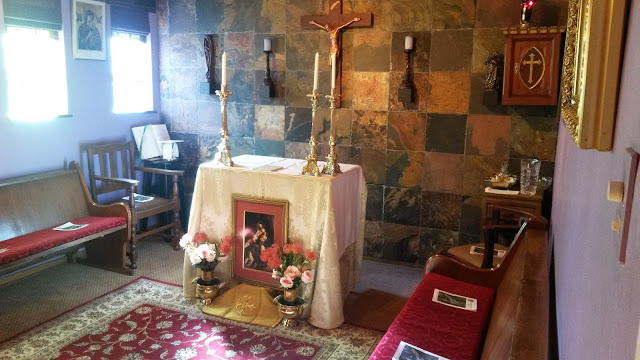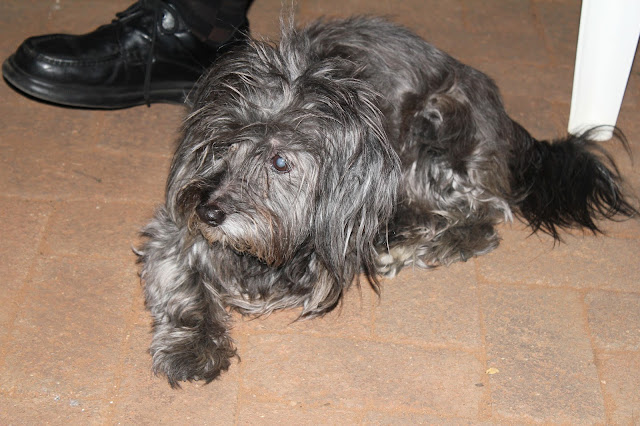“We can console one another in this faith, knowing that the Lord has conquered death once and for all.”
In the course of catecheses on the family, today we take direct
inspiration from the episode narrated by the Evangelist Luke, which we have just heard (cf. Luke 7:11-15). It is a very moving scene, which shows us Jesus’ compassion for one who suffers -- in this case a widow who has lost her only son -- and it shows us also Jesus’ power over death.
Death is an experience that concerns all families, without any exception. It is a part of life and yet, when it touches family affections, death never seems to appear to us as natural. For parents, to survive their children is something particularly excruciating, which contradicts the elementary nature of relations that give meaning to the family itself. The loss of a son or a daughter is as if time stood still: a chasm opens that swallows the past and also the future. Death, which takes away a small child or youth, is a slap to the promises, to the gifts and sacrifices of love joyfully given to the life that we made to be born. So often parents come to Mass at Saint Martha’s with the photo of a son, a daughter, a baby, a boy, a girl, and they say to me: “he is gone.” Their look is so sorrowful, and death does touch us. And when it is a child, it touches us profoundly. The whole family remains as though paralyzed, dumb. And the child that remains alone, because of the loss of a parent, or of both, also suffers something similar. The question: “But where is Daddy?” “Where is Mommy?” -- In Heaven -- “But why can’t I see him?” -- the question that covers the anguish of the little boy or the little girl. He remains alone. The void of abandonment that opens within him is all the more anguishing because of the fact that he does not even have the sufficient experience to “give a name” to what has happened. “When is Daddy coming back?” “When is Mommy coming back?” What can one answer? The child suffers. Death in a family is like this.
In these cases, death is like a black hole that opens in the life of families and to which we are unable to give an explanation. And sometimes one even blames God.
But how many people -- I understand them -- get angry with God, curse: “Why have you taken my son, my daughter? But God isn’t! God doesn’t exist! Why has he done this?” We have heard this so often; however, this anger is what comes, somewhat, from the heart of a great sorrow. The loss of a son, of a daughter, of the father, of the mother is a great sorrow, and this happens continually in families.
In these cases, I have said that death is almost like a hole. However, physical death has “accomplices,” which are even worse than it is, and which are called hatred, envy, pride, avarice, in sum, the sin of the world that works for death and renders it even more painful and unjust. Family affections seem like the predestined and defenseless victims of these auxiliary powers of death, which accompany the history of man. We think of the absurd “normality” with which, in certain moments and in certain places, the events that add horror to death are caused by the hatred and the indifference of other human beings. May the Lord deliver us from becoming used to this!
In the People of God, with the grace of his compassion given in Jesus, many families demonstrate with facts that death does not have the last word. And this is a real act of faith. Every time that a family in mourning -- even terrible -- finds the strength to protect the faith and love that unites us to those we love, it impedes death, already now, from taking everything. The darkness of death is confronted with a more intense work of love. “My God, lighten my darkness!” -- is the invocation of the liturgy of the evening. In the light of the Resurrection of the Lord, who does not abandon any one of those that the Father has entrusted to him, we can take away from death its “sting,” as the Apostle Paul says (1 Corinthians 15:55); we can impede its poisoning our life, rendering our affections vain, making us fall into the darkest void.
We can console one another in this faith, knowing that the Lord has conquered death once and for all. Our dear ones have not disappeared into the darkness of nothingness: hope assures us that they are in the good and strong hands of God. Love is stronger than death. Therefore, the way is to make love grow, to render it more solid, and love will protect us until the day in which every tear will be wiped away, when “death shall be no more, neither shall there be mourning nor crying nor pain any more” (Revelation 21:4). If we let ourselves be sustained by this faith, the experience of bereavement can generate a stronger solidarity of family bonds, a new openness to the sorrow of other families, a new fraternity with the families that are born and reborn in hope.

To be born and reborn in hope! – this is what faith gives us. However, I would like to underscore the last phrase of the Gospel we heard today. After Jesus brings this young man back to life, son of the mother who was a widow, the Gospel says: “Jesus gave him to his mother.” And this is our hope! All our dear ones who have gone -- all -- the Lord will restore to us and we will meet together with them. And this hope does not disappoint. Let us remember well this gesture of Jesus! “Jesus gave him to his mother.” Jesus will do this with all our dear ones in the family.
This faith, this hope protects us from the nihilist view of death, as well as from the false consolations of the world, so that the Christian truth “does not risk mixing itself with mythologies of various sorts,” yielding to rites of superstition, ancient or modern” (Benedict XVI, Angelus, November 2, 2008).
Today it is necessary that Pastors and all Christians express more concretely the meaning of faith in dealing with the family’s experience of bereavement. The right to weep should not be denied. We must weep in mourning. Jesus also “wept and was “profoundly moved” by the grave mourning of a family he loved (John 11:33-37). Rather, we can draw from the simple and strong witness of so many families who, in the very hard passage of death, were also able to pick up the secure passage of the Lord, crucified and risen, with his irrevocable promise of the resurrection of the dead. The work of the love of God is stronger than the work of death. It is precisely of that love of which we must make ourselves active “accomplices” with our faith! And let us remember that gesture of Jesus: “And Jesus gave him to his mother.” He will do this with all our dear ones and with us when we shall meet, when death is definitively defeated in us -- and defeated by the cross of Jesus.
Jesus will restore all families. Thank you.
 We can miss this detail in the story of today’s gospel. Jesus rebukes the storm and it subsides. We are told that “the wind ceased, and there was a great calm.” A sceptical person might see Jesus’ rebuke and the cessation of the storm as coincidental. But there is nothing natural about the sudden calm. As the storm ceases, the energy of the waves subsides. Since there were fishermen amongst the disciples in the boat, men who knew the sea of Galilee well, this would not have been lost on them. Look at their response: “…even wind and waves obey him.” They are in awe at the sheer scale of the work that Jesus has just performed, and of what that implies about who he is.
We can miss this detail in the story of today’s gospel. Jesus rebukes the storm and it subsides. We are told that “the wind ceased, and there was a great calm.” A sceptical person might see Jesus’ rebuke and the cessation of the storm as coincidental. But there is nothing natural about the sudden calm. As the storm ceases, the energy of the waves subsides. Since there were fishermen amongst the disciples in the boat, men who knew the sea of Galilee well, this would not have been lost on them. Look at their response: “…even wind and waves obey him.” They are in awe at the sheer scale of the work that Jesus has just performed, and of what that implies about who he is.









































